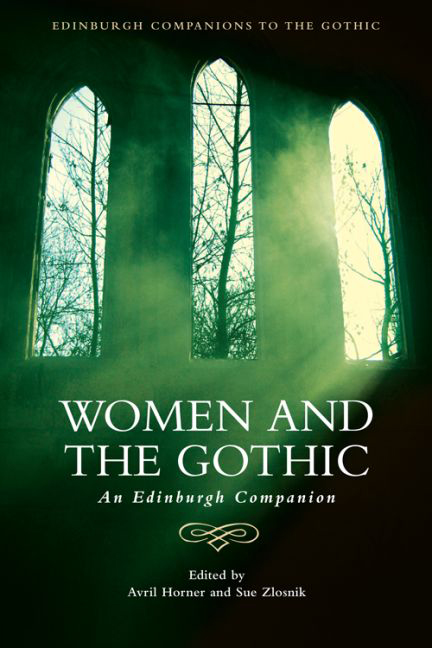Book contents
- Frontmatter
- Contents
- Acknowledgements
- Introduction
- Part I Family Matters
- 1 Heroines in Flight: Narrating Invisibility and Maturity in Women's Gothic Writing of the Romantic Period
- 2 Madwomen and Attics
- 3 Mothers and Others
- 4 The Gothic Girl Child
- 5 ‘A Woman's Place’
- Part II Trangressions
- Part III New Directions
- Notes on Contributors
- Index
3 - Mothers and Others
from Part I - Family Matters
Published online by Cambridge University Press: 23 September 2017
- Frontmatter
- Contents
- Acknowledgements
- Introduction
- Part I Family Matters
- 1 Heroines in Flight: Narrating Invisibility and Maturity in Women's Gothic Writing of the Romantic Period
- 2 Madwomen and Attics
- 3 Mothers and Others
- 4 The Gothic Girl Child
- 5 ‘A Woman's Place’
- Part II Trangressions
- Part III New Directions
- Notes on Contributors
- Index
Summary
The discursive panopticon that monitors and proscribes performances of femininity is particularly vigilant in relation to mothering. The pressures attendant on contemporary motherhood have been documented extensively in texts such as Naomi Wolf's Misconceptions (2002), Susan J. Douglas and Meredith W. Michaels's The Mommy Myth (2004) and more recently in Kat Banyard's The Equality Illusion (2010: 179- 202) and Rebecca Asher's Shattered (2012). These accounts all suggest that advance of feminism is precarious and that women continue to be defined and constrained by tenacious models of the maternal that merge with a loudly trumpeted post-femininity to overwrite patriarchal confinement with illusions of choice (McRobbie 2008: 1–5; Power 2009: 29–37). This chapter reads two contemporary films through the prism of women's Gothic to demonstrate the maintenance of a hegemonic version of the maternal that offers only compliance or abjection. Since Ellen Moers's famous claim that Mary Shelley utilised the fantastic potential of the Gothic to covertly represent the hidden horror of pregnancy and mothering (Moers 1978: 91–9) the figure of the monstrous m/Other has been identified as a site of rupture that serves a dual function: voicing the obfuscated experiences of maternity while simultaneously reinscribing the fictions that maintain the occlusion. Gothic texts (and their monsters) have always performed this contradiction, both policing and transgressing the borders between ideological inscription and resistance (Botting 2014: 8–12) and the films under discussion here operate in this way, both reasserting and troubling constructions of the m/Other and thereby articulating a range of anxieties that attend their maintenance.
Ridley Scott's Prometheus (2012) and Lynne Ramsay's We Need to Talk About Kevin (WNTTAK) (2011) seem at first to have little shared territory depicting, respectively, a dystopically imagined future and a realist nightmare. Prometheus is set in the late-twenty-first century on a high-tech spaceship and a desolate, inhospitable planet; WNTTAK is almost entirely enacted within the mundane, and primarily domestic, spaces of contemporary America. However, the films’ representations of the maternal and the monstrous – of mothers and Others – can be seen to reflect corresponding cultural anxieties about the production, maintenance and interrogation of twenty-first-century gender roles and the continued surveillance of maternity.
- Type
- Chapter
- Information
- Women and the GothicAn Edinburgh Companion, pp. 46 - 59Publisher: Edinburgh University PressPrint publication year: 2016



